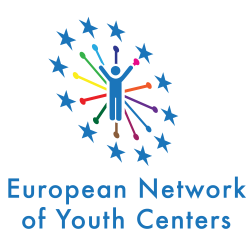In 1991, the Governing Board of the European Youth Centre (EYC Strasbourg) / European Youth Foundation (EYF) in conjunction with the CDEJ (European Steering Committee), was instructed to prepare a feasibility study on the prospects for extending training and co-operation in the youth field.
In its conclusions, the group responsible for this study considered various possibilities ranging from the creation of a second European Youth Centre in a Central or Eastern European country to the setting up of itinerant teams providing training and support for youth activities.
Among these hypotheses, the group mentioned the possibility of setting up decentralised European youth centres in various European countries.
This group’s findings refer to two areas :
a) with greater means and financial resources the EYC would be more efficient, that is to say, achieve optimum operation:
- by ensuring greater profitability of its infrastructures;
- by makings its research and information in the youth field more relevant;
- and by providing more diverse training activities (specialised training courses, long-term training courses based on projects etc). “However, in view of the present situation, efforts should be continued to make optimum use of the EYC; the creation of decentralised youth centres should not be seen as a threat but as a complement, while at the same time providing replies to new needs”;
b) the rapid movement of Central and Eastern European countries towards pluralist democracy has created very considerable demand for training courses and education in democracy and the operation of genuinely pluralist institutions.
Moreover, a parallel demand for training has also been manifested by countries from Southern Europe.
Youth participation in co-management
The first Conference of European Ministers responsible for Youth stressed the participation of young people in society, revealed shortcomings as far as impetus is concerned: in some countries, either at national or regional level, there was no body serving to stimulate action over the whole territory.
This demonstrated the necessity for the youth field of the Council of Europe to have decentralised structures serving to stimulate the development and enhancement of community life. It was also made clear that the national committees or other youth organisation co-ordination bodies should be fully involved in the development of these new structures which should, in particular, be able to offer diversified proposals for appropriated training courses as much for Central and Eastern European countries as for Southern European countries.
[…] The CDEJ and the Governing Board of the EYC/EYF concluded on the necessity to stimulate the decentralisation of training, research and information in the youth field, hence the idea of setting up decentralised European youth centres.
The philosophy behind the decentralised European youth centres
The philosophy behind these centres should consist of the major principles on which the Council of Europe’s youth field is founded, in particular:
- participation of young people, as a factor in training in democracy and assuming responsibility in everyday life, and as a vital element of the development of community life;
- intercultural education, as a factor of understanding between people and between nations and as a positive contribution, among others, to solving the problems encountered by minorities in multicultural countries and a multicultural Europe;
- co-management, as an element in ensuring the preparation and implementation of the major political and educational approaches in the youth field at a national, regional or even local level.
It has been proposed that a “philosophical Charter” of these decentralised European youth centres be drawn up. This should enable the centres to be given a seal of approval according to these principles and the approach on which the Council of Europe’s youth sector is based; these decentralised European youth centres would serve to promote this sector. In return, these centres could be supported by the EYC/EYF, particularly in logistical and financial terms.
Purpose of the decentralised European youth centres
Like the EYC, the purpose of the decentralised European youth centres would be :
- to highlight, promote, and broaden knowledge of linguistic, cultural, social, economic and political characteristics at local, regional and national level of countries hosting a decentralised European youth centre and to give young people from other European countries the benefit of intercultural education based on specific economic, social, cultural and political data;
- to promote means of encouraging and ensuring the participation of young people in community life and particularly in finding solutions to problems concerning them, at regional and/or national level as well as at European level, and to develop activities arising from regional/national needs that may be beneficial for the development of a European awareness and identity;
- to carry out specific activities with a European dimension which cannot be carried out at the EYC;
- to serve as meeting places for regional, national or European youth organisations which will promote international understanding in keeping with the principles of human rights and fundamental freedoms;
- to offer further training to youth leaders in a regional or national context against a European background, according to the specific characteristics of each region or country;
- to provide training courses for leaders of youth organisations, teachers or other persons intending to organise youth exchanges or other types of visits, in accordance with the principles laid down by the Third Conference of European Ministers responsible for Youth;
- to promote research on youth problems: a) through exchange of ideas and discussion of experiences; b) through research with project teams aimed at promoting training activities; c) through contacts with persons providing resources (local universities, researchers, political personalities, socio-economic personalities) at local, regional, national or European level;
- to ensure a constant link with members of the Council of Europe’s Parliamentary Assembly, elected representatives of the Congress of Local and Regional Authorities of Europe and with experts working in various Council of Europe fields such as environment and education;
- to serve as regional, national and European-level information and documentation centres for everything concerning young people in a particular region, and working closely with other information and documentation structures – either already in existence or in the process of being set up – and more particularly with the EYC Tuition, Documentation and Research Section: a) information on youth exchanges; b) educational material on international youth work; c) documentation on thematic aspects of international and European youth work and particularly documentation on European unity through the plurality of regional and national cultures; d) information on regional, national and European youth structures and policies.
- to ensure contacts with the media with a view to setting up a European media area in the youth field;
- to serve as venues for EYCs activities such as language courses and/or training courses – or indeed symposia – with the aim of stimulating the European and international dimension of youth work at regional level.
Operation of the decentralised European youth centres
As far as their operation is concerned the centres should set up co-management structures which will guarantee the participation of all the partners their operation. The partners in this co-management should be on the one hand the regional or national authorities and on the other hand regional or national youth organisations, either individually or collectively, in co-ordination bodies.
All of these decentralised European youth centres would be represented in the EYC/EYF Governing Board by a representative without a right to vote and elected according to arrangements yet to be defined. In addition, during the meeting of the EYC/EYF Governing Board in the second half of each year, the Chairperson of the Governing Board of each of these centres should submit an activity report and receive a moral and political discharge. This procedure will enable these new structures to be fully associated in defining youth policies at European level.
Finances of the decentralised European youth centres
Financially, resources should be provided by national or regional authorities; however, the centres signatory to the “philosophical charter” would receive a basic annual contribution which would be defined according to certain criteria and would depend on the funds needed for projects linked to these centres. With regard to regional or national projects with a European scope such as the training of leaders of youth organisations, or of education projects or one-off requests for meetings of a European nature, it was suggested that the following possibilities be examined:
- either to extend the scope of the EYF in funding projects for European youth;
- or to set up an additional fund whose purpose would be to provide specific support for activities and initiatives of a European nature promoted by these centres.
5 potential decentralised European youth centres
Since 1991, certain proposals have been explored, unofficially, and more recently on an official basis. In fact, the possibility of creating a Euro-Mediterranean youth centre in Malta has been mentioned, as well as the development of a cultural centre in Delphi with a specific competence in the youth field and a role in the Balkan area and possibly in the Mediterranean, a Centre in Gdansk for Euro-Baltic cooperation, another Centre in Ohrid (“the former Yugoslav Republic of Macedonia”) for Euro-Balkan cooperation and a Centre in one of the Caucasian Republics for inter-Caucasian co-operation.
It is foreseen that some of these proposals will shortly be submitted to the competent bodies of the Council of Europe for examination in the near future. Others are still at the exploratory stage or are undergoing a feasibility study. The competent authorities of the countries mentioned have been informed of the content of the present document and the recommendation of the Governing Board of the EYCs and EYF to the Committee of Ministers as indicated in paragraph 4 of this document (see also doc. CM (91) 106, appendix 1).
When examining the policies, activities and structures of the Council of Europe, these elements should also be taken into account.
For the full version of the text, please access the link below:
Rapporteur Group on Youth GR-Y(97)11 from 26 August 1997 (Council of Europe)

